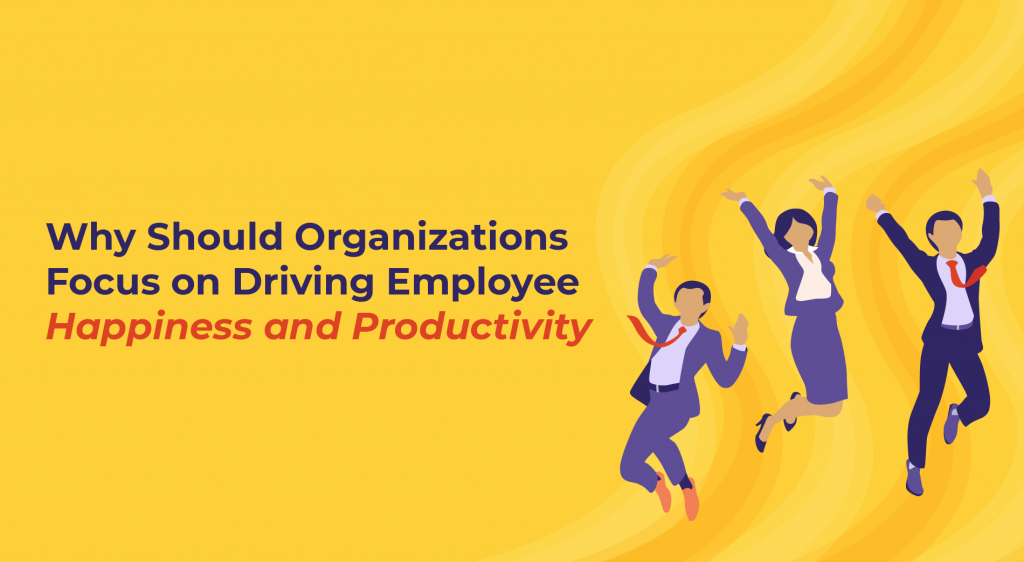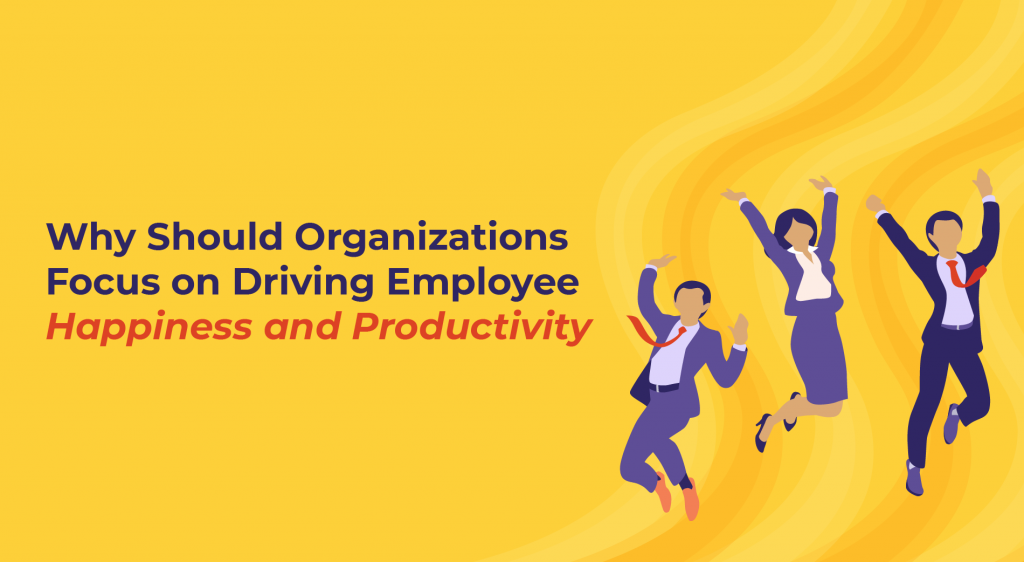
Why Should Organizations Focus on Driving Employee Happiness and Productivity

As working professionals, we all play an instrumental role in the respective elements or processes we own. The undying rule is that those organisations that ensure employee well-being sustain and thrive in the long run.
In today’s competitive business landscape, the role of Chief Human Resources Officers (CHROs), HR professionals, and thought leaders in driving employee happiness and productivity has become increasingly crucial. Research indicates employee happiness directly impacts productivity, retention, and overall organizational success. Another exciting element is that organisations are receptive to emotional wellness and have started recruiting chief happiness officers.
Why is Employee Happiness Essential for Organizational Success?
An Indian-based research found that 75% of employees who consider themselves happy at work are more productive. Additionally, 60% of employees reported feeling more engaged when their happiness was prioritized. These statistics emphasize the integral role of employee happiness in driving productivity and overall organizational success.
Here are ways to inculcate this into everyday practice:
- Adopting an open-door policy and conducting employee surveys regularly encourages open communication and feedback channels to address employee concerns.
- An anonymous feedback mechanism is another practice that organisations have started following to promote honesty.
- Implementing wellness programs such as fitness facilities and workshops promotes a healthy work-life balance policy to support employee well-being.
How Does Employee Happiness Impact Retention Rates?
Employees’ emotional well-being is directly connected to their working style, ethics and the culture they represent as individuals.
According to the 2024 Gallup State of the Global Workplace report, 86% of Indians felt they were struggling or suffering, which is way above the global average. Addressing workplace dissatisfaction can reduce stress and negative emotions, improving workforce satisfaction and productivity.
Measures Leaders Should Adopt To Promote Employee Happiness:
- Foster a supportive and inclusive work culture to boost employee morale and retention by investing in employee growth.
- Development through training and mentorship programs is a healthy learning exercise that promotes team building.
- Leaders can begin by encouraging support group practices in the office, bringing together employees with common interests, and providing opportunities for skill development and career growth to enhance employee satisfaction.
What Role Do Thought Leaders Play in Shaping Employee Happiness?
Research revealed that 80% of employees believe that leadership behavior and actions directly impact their happiness at work. Thought leaders, including senior executives and managers, play a pivotal role in shaping organizational culture and fostering employee happiness.
Encourage leadership to lead by example and prioritize employee well-being, where a regular check-in or feedback session will help build trust and promote respect with the team.
Thought leaders can influence and shape employee happiness by advocating for work-life balance initiatives and prioritizing mental health support within the organizational culture, fostering a nurturing and empathetic work environment.
Measuring the Impact: How Can HR Professionals Assess Employee Happiness and Productivity?
According to a survey, 55% of organizations utilize employee satisfaction surveys to gauge happiness and productivity. Additionally, 45% of organizations track metrics such as absenteeism rates and project deadlines to measure the impact of employee happiness on productivity.
Implement regular employee surveys or upward feedback processes to gather feedback and identify areas for improvement. Keeping anonymous helps them stay honest with their responses.
Utilize key performance indicators (KPIs) to measure the impact of employee happiness on productivity and business outcomes.
Happiness in corporate is attainable and not just a fancy fairytale. Prioritizing employee happiness and productivity is essential for attracting and retaining top talent and driving overall organizational performance.
CHROs, HR professionals, and thought leaders must recognize the significance of creating a positive work environment and implementing strategies to enhance employee well-being.
Organizations can cultivate a culture of happiness and productivity, leading to sustainable success in the ever-evolving business landscapes. If you aim to establish this culture in your team and be a vehicle towards enabling growth for you and working towards creating thriving workplaces, our professionals are here to assist you. Click here to know more.







